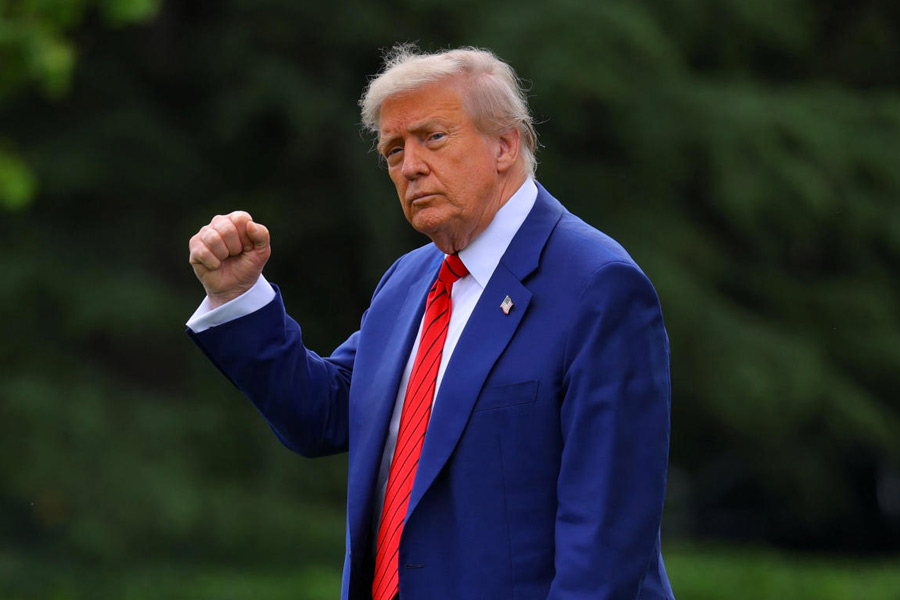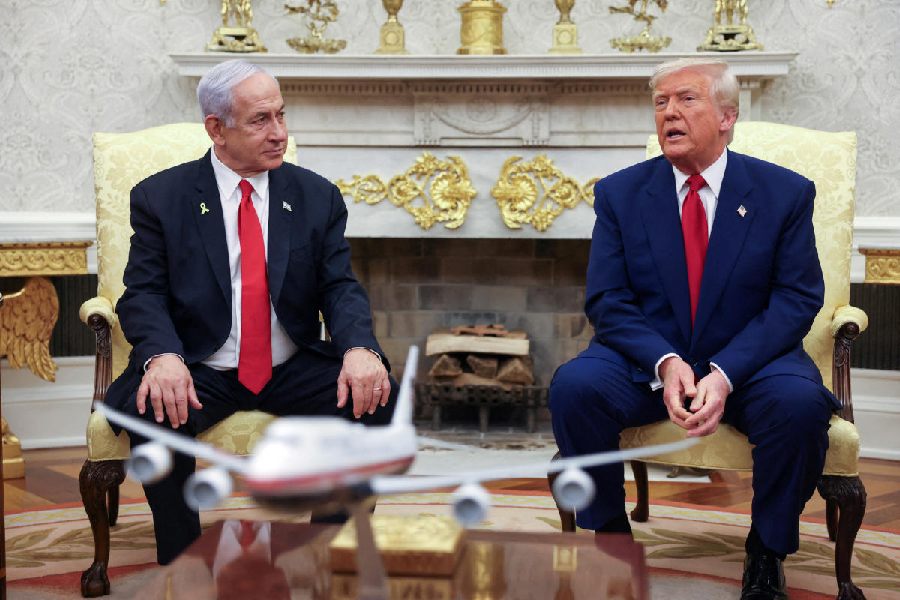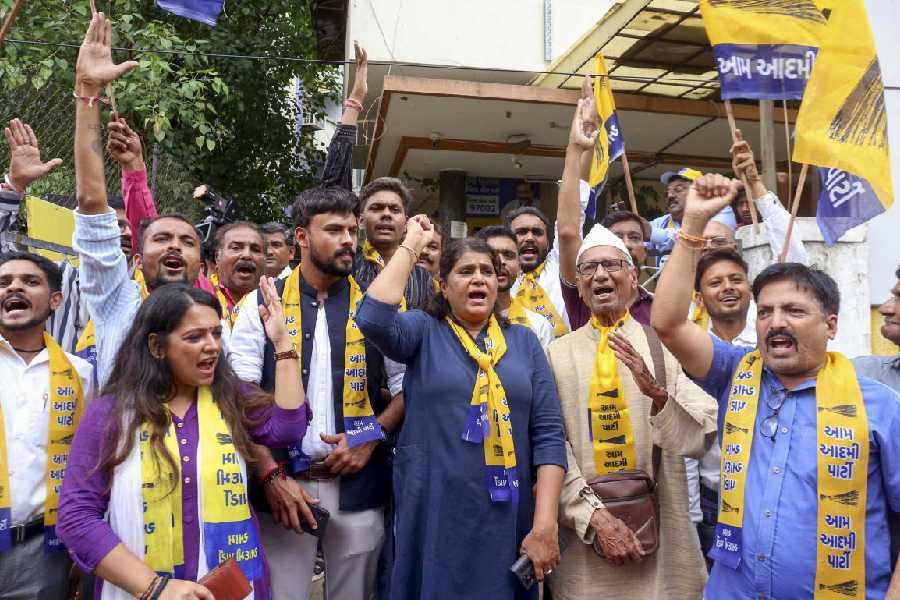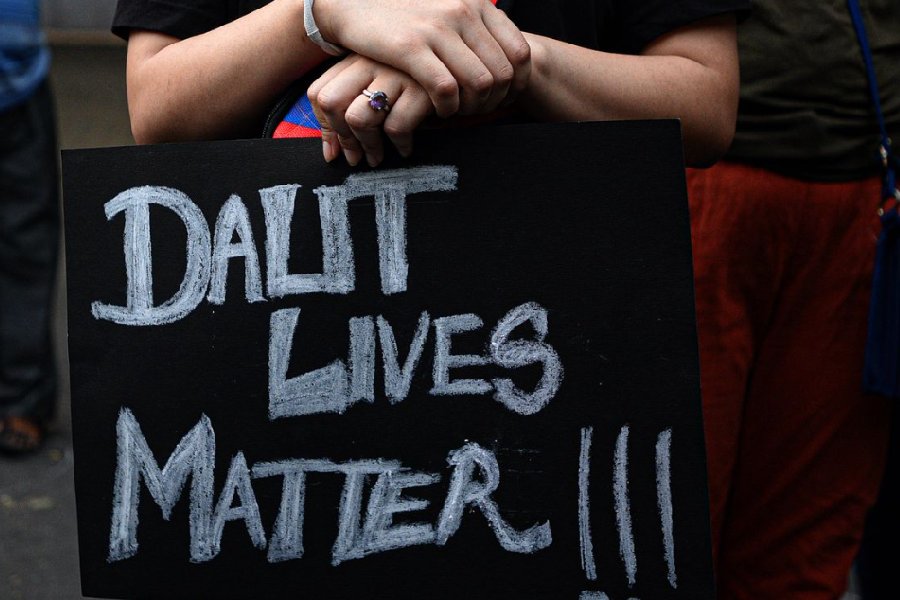 |
 |
| (Top) Fidel Castro trips and falls after the speech at the graduation ceremony in Santa Clara, Cuba, and (Below) is helped to his feet by his bodyguards. (AP,AFP) |
Havana, Oct. 21 (Reuters): Cuban President Fidel Castro tripped and fractured his left knee and right arm in a tumble captured on live television, the government said today.
The 78-year-old leader?s dramatic fall raised new questions about the political future of the communist-run country which he has led for 45 years. Castro stumbled on a step and fell on his left knee last night as he returned to his seat after a graduation ceremony speech at the mausoleum holding the remains of fellow revolutionary Che Guevara at Santa Clara in central Cuba.
Helped to a chair, he quickly recovered and asked for a microphone to reassure the stunned crowd of 30,000 people, some of whom broke into tears, that he was ?intact? and would be able to continue working even in a plaster cast.
A brief government statement issued after a medical examination said Castro broke his left knee and suffered a hair-line fracture in his right arm.
?His general health is good and spirit excellent,? it said.
The statement added Castro wanted the country to know ?he is in condition to continue attending to fundamental issues in close cooperation with the leadership? of the ruling Communist Party.
?He is a man of great strength and vitality. I am sure he will recover quickly and return to the fight,? said Ricardo Alarcon, president of Cuba?s National Assembly and one of the country?s most powerful men.
But the incident renewed uncertainty among Cubans about how long the ageing leader can remain at the helm at a time of growing pressure by the US government to oust Castro by supporting dissent and tightening sanctions on Cuba?s battered economy.
Since a brief fainting spell during a speech in June 2001, doubts about Castro?s health have persisted.
While Castro continues to give long speeches and appear on marathon television broadcasts, his public activity has declined. Leading an anti-Bush march against in Havana in May, Castro looked frail and appeared to walk with difficulty.
Cuba watchers said it was no surprise a man of his age, when bone density starts to decline, had fallen and broken bones. The issue, they said, is whether Cuba is prepared for the day when Castro is no longer managing and taking decisions at the pace he has kept up for four decades.
?He is the consensus builder. This has not diminished with age or time. Nobody thinks that role can be replaced by one person,? Sweig said. After the 2001 fainting incident, Castro confirmed that he views his younger brother, Raul, head of Cuba?s armed forces and number 2 in the political hierarchy, as his successor.
Members of the Cuban leadership, such as vice-president Carlos Lage and Alarcon were quick to point out that Cuba has a succession process in which the council of state nominates another leader.










